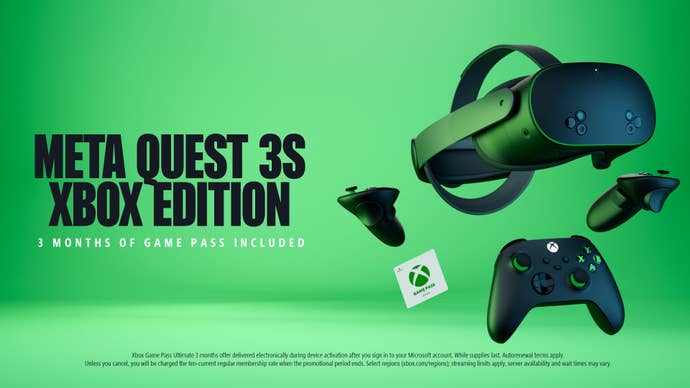Here we go again.
No doubt you will have already caught up with the news about the latest round of job cuts at Microsoft. In summary, the giant US firm has slashed around 4% of its workforce, equating to roughly 9,000 people.
Many of those cuts have come in the gaming division. Yesterday and today we have all been watching in horror as news slowly rolls in of job losses at King, Raven Software, Rare, and Blizzard, among others. Rare’s long-in-gestation Everwild has been cancelled. So, too, has The Initiative’s Perfect Dark reboot – and the studio has been shut to boot.
We knew the cuts were coming, but that didn’t help to cushion the blow. It’s not the first time we’ve been in this situation, either, following waves of Microsoft job cuts in May and January this year, as well as last September, not to mention the closure of Tango Gameworks and Arkane Austin in May 2024. (At least Tango was resurrected by Krafton.)
All of this at a time when Microsoft has announced an overall revenue increase of 16% in its latest results – including an 8% increase in Xbox content and services.
Frankly, it’s not a great look.
At best, it’s callous. At worst, it betrays the lack of a coherent strategy.
The question on everyone’s lips is: “What on earth is going on with Xbox?”
Whenever I chat with someone in the games industry, almost inevitably the conversation will circle around to Microsoft, and the question on everyone’s lips is: “What on earth is going on with Xbox?” The answer is usually a quizzical shrug.
We sort of think we knew. Microsoft’s studio buying spree over the past decade, amounting to somewhere in the region of $80 billion, seems to have been about ensuring a steady supply of games to feed into its Game Pass subscription service.
Fine. That makes sense. But then again, that’s an awful lot of money to spend, when you think about it. In fact, with some quick napkin maths, it’s the equivalent of 66.6 million people subscribing to Game Pass Ultimate for $20 a month for five years. (The last time Microsoft reported Game Pass subscriber numbers was February 2024, when there were 34 million of them.)
In hindsight, the $68.7 billion purchase of Activision Blizzard looks reckless, a swaggering move in a time of games industry largesse, when numbers travelled ever upwards as COVID locked people away with little but their games consoles for company.
Now, in a time when sustainability has become the games industry’s watchword, how will that debit in the ledger be accounted for? It’s tempting to imagine that huge purchase has prompted the Eye of Sauron of Microsoft’s upper management to swivel towards the gaming division.
We don’t know what justifications were offered to appease the Eye. But we do know that an Xbox will be ‘anywhere’, apparently. Whether that anywhere includes another Xbox console is anyone’s guess. It will certainly involve slapping an Xbox logo on someone else’s PC handheld and VR headset.

Given that the last two Xbox generations have been handily outsold by PlayStation, the Eye may be forgiven for wondering how next time might be different. Microsoft has always been a software company. Perhaps it is preparing to retreat into its safe space.
In the meantime, humans pay the cost for strategic disarray. The lasting impression of this week’s cuts is the tragic waste of good talent. To give one example of many, VGC reported that Gregg Mayles – a veteran of 35 years at Rare – is being let go.
It’s one thing to cancel Everwild – a game that we’ve heard underwent a “complete reboot” two years after its reveal in 2019 – but it’s quite another to let go of the institutional knowledge of senior employees so easily. One might even call it reckless.
Likewise for the closure of The Initiative. The studio was only founded by Microsoft in 2018 and has yet to ship a single game. Discarding it feels not only wasteful, but directionless.
It’s hard to dispel the feeling that these cuts are simply part of a disordered retreat
Without knowledge of the Xbox division’s greater plans – and there has been a distinct lack of communication from senior management on this front recently – it’s hard to dispel the feeling that these cuts are simply part of a disordered retreat, a frantic hacking away at spreadsheet figures, with too little regard for what’s been lost and where this is all going.
That’s certainly the impression, anyway. And with little communication from Microsoft to disabuse the public of this notion, that’s the impression that will stick.
Which leaves the open question: are darker days to come?



